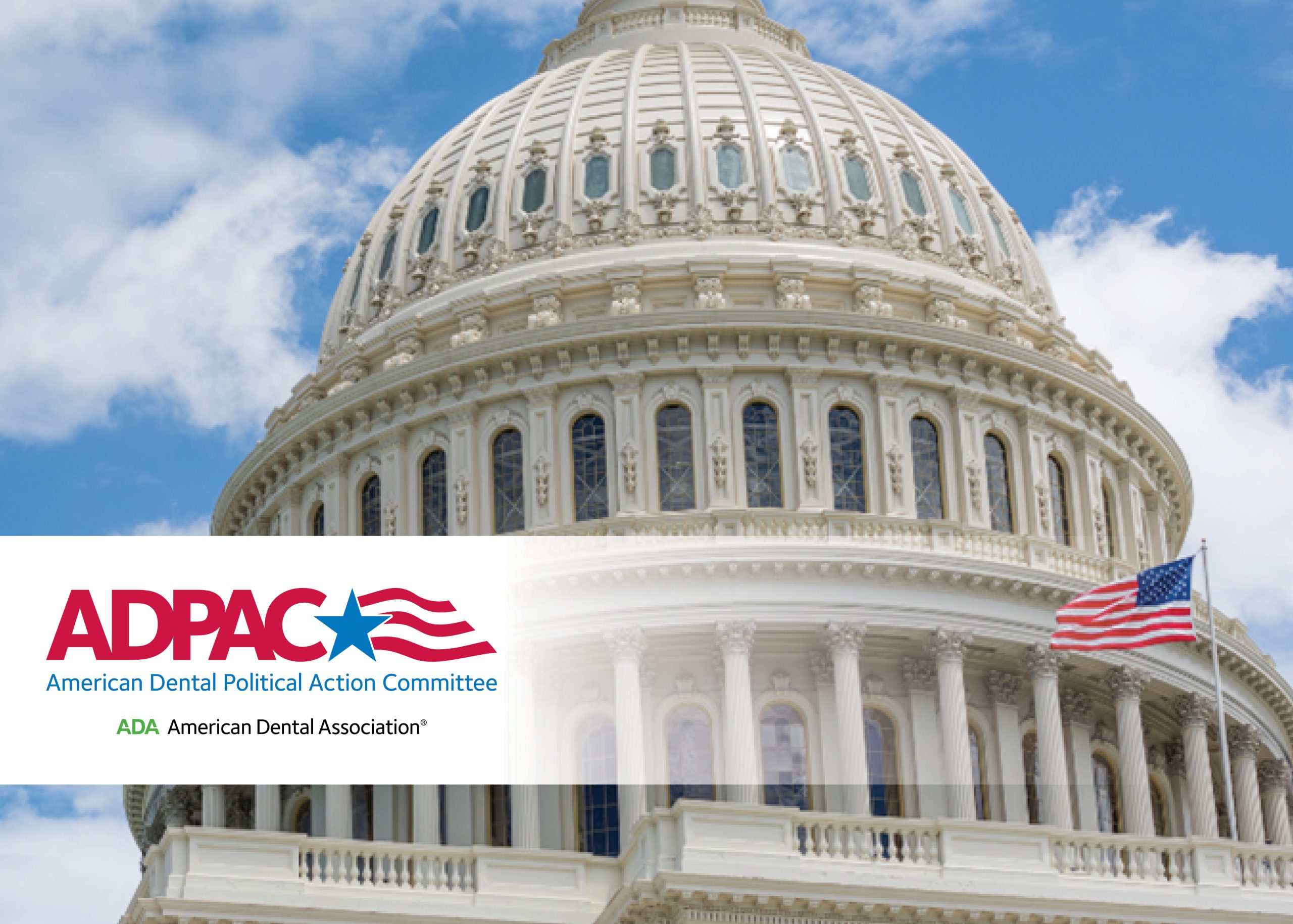Want to influence the future of dentistry?
Friends of Dentistry is a powerful partnership between ADPAC, dentist, and corporate allies aimed at protecting, promoting, and strengthening dentistry.
As the political landscape shifts, ADPAC’s Friends Of Dentistry is your strategic tool. We drive targeted advocacy, legislative engagement, and grassroots mobilization to benefit our stakeholders. Your support isn’t just a donation—it’s an investment that shapes public policy and directly secures the strength and success of the entire dental profession.

The future of dentistry depends on legislative action, and ADPAC’s Friends Of Dentistry is leading the fight. We concentrate on four essential priorities:
• Tackling student debt
• Securing key federal appropriations
• Reforming predatory dental insurance practices
• Advocating for tax policies that protect the business of dentistry
Join us by investing today—because a strong voice in policy is the best way to protect our patients and our profession.
Supporting ADPAC’s Friends of Dentistry, is a strategic way for corporations to advocate for policies that align with their business objectives and the interests of their industry. ADPAC works to ensure that dentistry has a strong voice in Washington, helping to shape legislation on issues like oral health funding, dental workforce development, public health programs, and insurance reform. By supporting Friends of Dentistry you can strengthen your role as a committed stakeholder in the dental profession, building goodwill with practitioners, patients, and policymakers alike.
Moreover, contributing to Friends of Dentistry demonstrates corporate responsibility and leadership in shaping a policy environment that fosters innovation, public health, and access to care. For a company deeply embedded in oral health outcomes and prevention, it is essential to have a seat at the table when decisions are being made that impact the marketplace and those who deliver care. ADPAC’s Friends of Dentistry gives the dental profession, and supporters, a platform to engage in bipartisan advocacy and ensure lawmakers understand the real-world impact of proposed legislation.
In short, supporting Friends of Dentistry helps align corporate goals with public policy priorities that promote both better oral health and a stronger dental community.
We offer various giving levels to accommodate dentistry’s stakeholders, each with unique benefits and opportunities for involvement. We encourage you to review the giving opportunities and consider the level of support that best aligns with your commitment to our cause.
In addition to the donor level associated with your support, all Friends of Dentistry investors this year will achieve the special designation of a Founding Member and receive special recognition within the industry.
Together, we can make a difference. We look forward to partnering with you to achieve our shared goals and create lasting change for dentistry.
ADPAC has many restrictions on how it is raised and spent and must be fully reported to the Federal Election Commission. It is raised from individuals, who can contribute up to $5,000 to a Political Action Committee per year. In turn, ADPAC may contribute $5,000 to a federal candidate, per election.
Friends of Dentistry funding is invested by corporations, associations, and individuals. There are no limits on the amount of money a corporation or individual can contribute, however, political candidates cannot accept Friends of Dentistry dollars directly.
Contributions to the Friends of Dentistry are considered non-qualified funds and ADPAC may use these funds to support issues advocacy.
Hard money has many restrictions on how it is raised and spent and must be fully reported to the Federal Election Commission. It is raised from individuals, who can contribute up to $5,000 to a Political Action Committee, like the American Dental Political Action Committee, per year. ADPAC may contribute $5,000 to a federal candidate, per election.
Soft money is raised from corporations, associations, and individuals. There are no limits on the amount of soft money a corporation or individual can contribute, however, political candidates cannot accept soft dollars directly. Contributions to the Political Education Fund are considered soft money and ADPAC may use these funds to support issues advocacy.
The restaurant and foodservice industry has nearly 1 million outlets and employs more than 15 million people. Together the voices in the industry can move lawmakers toward change.
The Credit Card Competition Act (CCCA) would stem skyrocketing fees, improve security and service, and save American businesses and consumers an estimated $16 billion per year.
The Main Street Tax Certainty Act makes the QBI deduction for pass-through businesses permanent. Without this legislation, this deduction will expire at the end of 2025.
Sign up to receive important emails about the issues facing the restaurant industry and the more than 15 million foodservice industry jobs it supports.
ADPAC is a federally registered political committee. Contributions to ADPAC’s Political Education Fund (PEF) are voluntary and any person has the right to refuse to contribute without reprisal. The contribution guidelines are merely suggestions and a person may contribute more, less or not at all without concern of favor or disadvantage by the ADA. PEF donations will not be used by ADPAC for contributions but will be used exclusively to pay for the administrative and operating expenses for ADPAC or related political activity. Both personal and corporate contributions to the PEF can and may be used for ADPAC’s independent expenditure activity. Contributions are not deductible as charitable contributions for federal tax purposes, and are not limited.